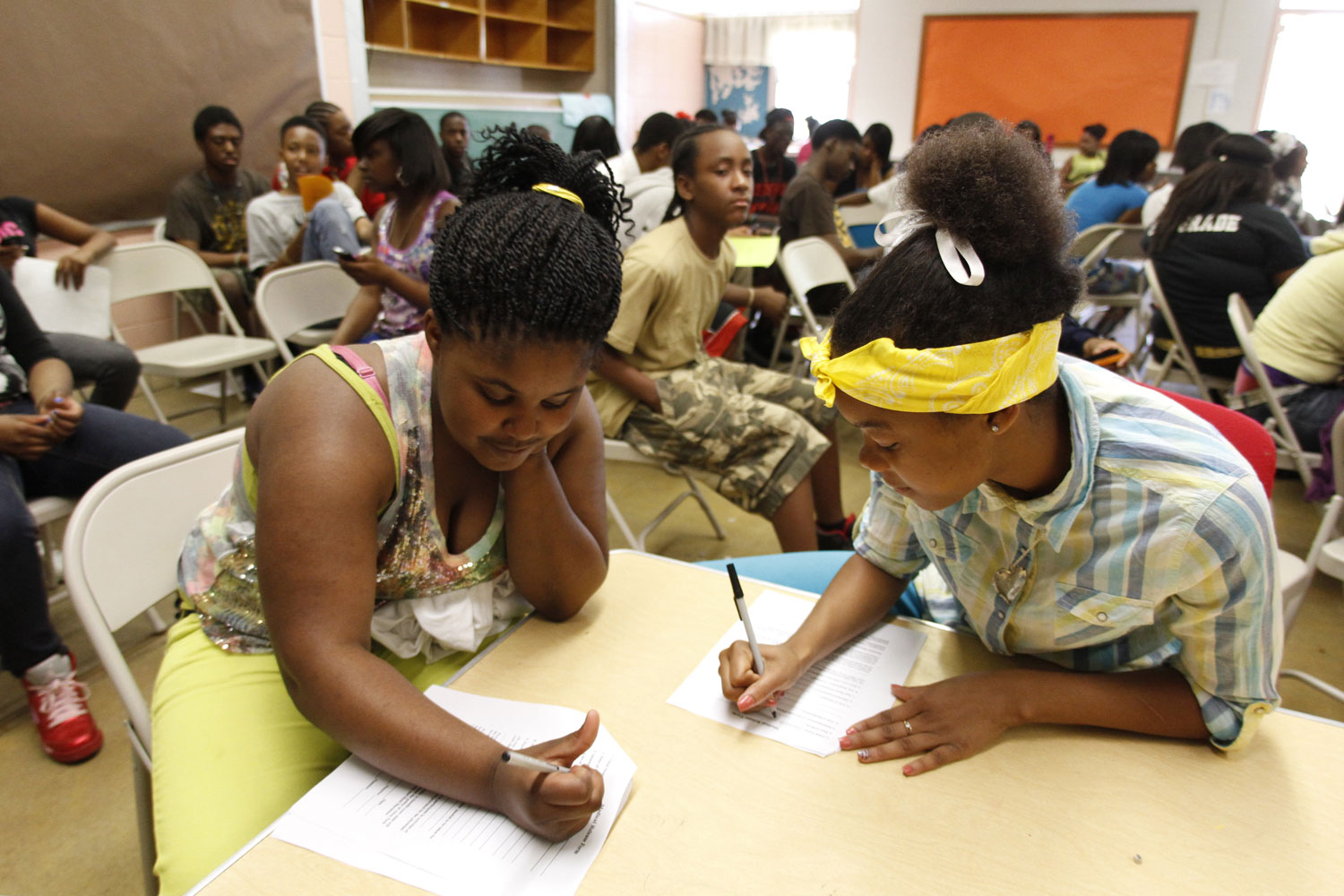It's easy to dismiss some issues as black and white. Actually, no, it's not easy, it's just lazy.
We read stories about the education gap, the jobs gap, the health gap. What we often fail to understand is the effect of the whole.
These gaps are connected.
It's no accident that where men and women don't have jobs, children live in poverty. And when children don't have extras like books and enrichment activities outside of their own back yards, they aren't prepared for school.
It's no accident that if those youngsters begin school behind their peers, they soon fall further behind in classrooms with cookie-cutter, one-size-fits-all lessons. The lost children, so behind that the teacher's words are a jumble, are hopelessly bored - so bored they become unruly and get suspended.
With suspensions, they become so isolated they simply drop out. Once they've dropped out, they are pretty much doomed to be part of the next generation of unemployed or under-employed adults.
So the cycle repeats itself.
Consider these numbers:
• The 2013 unemployment rate for black American teens is 43.1 percent, while the jobless rate for all American teens is 25.1 percent.
• In 2010, [the most recent local numbers available] the unemployment rate for blacks here was 16.2 percent, while for whites it was 7 percent.
• Nearly half of black males ages 16 to 64 in Alton Park - 47.8 percent - are unemployed, while 33 percent in East Chattanooga are without jobs.
• The median household income for all blacks in Hamilton County is $26,787. It's $51,548 for whites and $28,519 for Hispanics.
• Most lower-paying service jobs are held by people living in the inner city, while people with higher paying management jobs and occupations in the arts and sciences live in North Chattanooga or the city's suburbs.
• About 30 percent of blacks ages 18 to 24 do not have a high school diploma, and the jobless rate for black males without a diploma is 52 percent.
• Nearly 60 percent of black children in Hamilton County live in poverty, compared with 16.5 percent of whites.
• Urban elementary schools such as Hardy, Barger and Calvin Donaldson lead the county in school suspensions compared with predominantly white suburban schools like Thrasher, Nolan and Lookout Mountain, which have the least suspensions. There also are more suspensions in mostly black high schools.
It's time to stop it. It's time to overcome.
So while the federal budget sequestration is closing Head Start facilities and Hamilton County commissioners are keeping school budgets lean and businesses are trimming workers from full-time to part-time at every opportunity, a handful of Chattanoogans are stepping forward to make change.
One of those is Dr. Elenora Woods, a dentist and the executive director of the Alton Park Development Corp. Woods said she saw the numbers on jobless blacks and the stark differences in income and school achievement and decided to take matters into her own hands.
She rounded up 125 black teens and has obtained commitments from 60 employers to offer 150 positions for teens ages 16 to 18. She asked that the youths be paid at least minimum wage and work a minimum of 20 hours a week for the summer.
She's also leading by example, hiring two teens for summer jobs in her office.
Another forward thinker is Kenneth Simpson. Simpson and a group from the men's ministry at Alton Park's New Emmanuel Church are planning a job training program to put unemployed men to work regardless of the obstacles the men have to overcome - including felony records.
The group is preparing a budget and seeking help from the MacClellan Foundation. Members hope to begin offering classes by January in subjects such as welding, auto mechanics and interview skills.
Hope for the Inner City started a Jobs For Life program near College Hill Courts in the fall of 2012 to help men on the Chattanooga Housing Authority's criminal trespass list get jobs and be welcomed back into public housing to reconnect with their families there.
These are powerful initiatives with grassroots origins. This is working to overcome. This is stretching. This is good.
